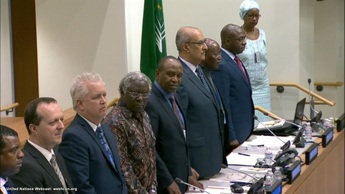 Panel standing during the Anthem of the African Union Panel standing during the Anthem of the African Union May 27, 2014 Recently Africa Day was observed at the United Nations in New York. On this occassion a panel discussion was staged entitled: 'Transforming Africa's Agriculture for Shared Prosperity and Improved Livelihoods: strengthening the AU/UN partnership for tangible impact'. Looking at the panel on stage I could not help but realise that gender balance is still a major challenge at panels and fora like these. Nevertheless several of the panel presenters pointed to the important role of women. The Special Advisor on Africa, Dr. Maged Abdel Aziz from Egypt, as co-organiser stressed the importance of small-holder and family farming in Africa with 80% of farms family owned. Marking the tenth anniversary of the Comprehenstive African Agriculture Development Programme (CAADP), Mr. Abdel Aziz made explicit reference to the successtories of Ghanean cocoa farmers halving poverty levels and the positive experience in Malawi with seed and fertilizer subsidy resulting in a net surplus production, coming from a deficit situation. However, he also noticed that only 6% of arable land is under irrigation. As a result 25% of people in Africa are still food insecure and 30-40% of the children under five face severe accute malnutrition. He emphasized the need to turn current low-yield subsistence farmiing into high-yield agri-business. At the same time the biggest challenge remains the management of fresh water resources. Mr. Abdel aziz also pointed to trade barriers that slow down regional integration, which would be instrumental to achieving food security according to Mr. Abdel Aziz. Leapfrogging Dr. Calestous Juma, Professor of the Practice of International Development and one of the most influential African scholars of this moment, brought his perspective on CAADP and in particular on the Science and Technological Innovation pillar of the CAADP programme. He shared his thoughts about the advantage for Africa of being a late entrant to the development scene, being able to use technologies developed elsewhere and upscaling them rapidly in Africa (for example mobile telephony). "We need to think about different type of universities that are very practical, probably smaller and more directly connected with the agricultural sector. Decentralising the system of higher education so that the universities go to the farmer rather than farmers having to access universities." In terms of the CAADP agenda it is clear that an agricultural development lead industrialisation is now commonly embraced by the African leadership. Along with improved regional integration, making sure lessons from the European integration project are taken on board, Africa can leapfrog ahead on the development path according to Prof. Calestous Juma, one of the panelists and key-note speaker. One of the key policy directions he brought up links to agricultural training: "How do we train our young people in Agriculture. We used to train people for certificates and send them to the labour market in search for a job that does not exist." Prof. Juma suggests a decentralised model of universities closer to agricultural communities with universities better connecting to the agricultural sector.
Gender Prof. Juma also pointed to the important role of women as they are doing most of the farming work. He pointed to the example of the African Rural University for Women in Uganda. Training women in the engineering sciences would be another priority in order to replace Chinese maintenance workers. Succesful pilots of having women prototyping tools for agriculture using a 3D printer have been implemented. You may watch the full panel presentation at UN WebTV.  Foreign currencies are not to pay for advocacy Foreign currencies are not to pay for advocacy Mrs. Liliane Ploumen, Minister of Aid and Trade in the Netherlands, has issued her new policy framework for working with CSO's entitled "Dialogue and Dissent". Unlike the previous time the framework is simultaneously made available in English. This points to an important shift in funding strategy. So what are the differences with the current co-financing framework? An important departure from the Koenders era is that international organisations with their headquarters in Western societies are excluded from support. This will exclude agencies like like Oxfam and Save the Children with their headquarters in the UK and US. Instead local NGOs that have grown and expanded operations to at least two other countries in the region are included. Minister Ploumen found ways to encourage cross-border operations while prioritising local actors' operations. An interesting move that should be read against the backdrop of regional integration issues serving also EPA arrangements that Europe is trying to pursue and regional agenda setting. Cross-border operations Typically cross-border operations involve international NGOs, often populating the policy fora in developing countries exerting their influence and trying to claim a role for themselves. In recent years national governing bodies have become more self-confident and are fomulating legislation that limits foreign influence. In Ethiopia for instance, local NGOs can only receive external funding for service delivery and lobby and advocacy should be domestically financed. This itself will bring a challenge to the intentions of Mrs. Ploumens new policy framework, at least concerning Ethiopia. Also Uganda has become more confident in stating its own priorities, not always to the satisfaction of their international partners. The state is still very much sovereign, and implementation of ratified international human rights treaties is often not prioritised. Will Ploumen be able to turn the tide somehow when the traditional countervailing power role is no longer accepted from international NGOs? Locally rooted CSOs The Minister's attempt to provide access to Dutch co-financing to locally rooted civil society organisations should be appreciated. However, in Ethiopia for instance it may still be considered foreign influence. At the same time you wonder how many potential candidates fit into this category and will navigate the Dutch co-financing system for support. A system that has already suffered substantial reduction of funds, leaving the Dutch to fail on their 0,7% commitment if you take out all budget dilution items like export subsidies or trade related transfers. Are Dutch NGOs willing to encourage their regional partners to share the cake and take the lead in the application processes or not? We will probably know in September. 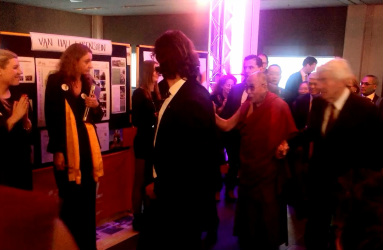 The Dalai Lama in front of the VHL poster at Education of the Heart The Dalai Lama in front of the VHL poster at Education of the Heart Rotterdam, 12 May, 2014 Today I was privileged to join three of the best students of the Van Hall Larenstein (VHL) masters (from Brazil, The Philippines and Uganda) and a few colleagues and other students from VHL to a symposium entitled Education of the Heart. The symposium was organised for the occasion of the visit of Mr. Tenzin Gyatso (better known as the Dalai Lama) to the Netherlands. The Dalai Lama was welcomed by Dr. Ruud Lubbers and subsequently interviewed by Dr. Dan Siegel of the Garrison Institute. It struck me that it took Dr. Siegel quite a long time to summarise the morning session to His Holiness the Dalai Lama and actually went a bit beyond summarising, adding some seemingly scientific content to the Dalai Lama's speech, requesting confirmation of the findings. His Holiness, however, was clever enough not to embark on that route. Having just been to a session in the Dutch parliament, he subsequently gave his views about the relationship between Europe and Russia, suggesting that the NATO should move its headquarters to Moscow as a kind of appeasement policy. It was obvious that the Dalai Lama did not see himself as God, though he was treated as if he were a god by some people in the audience who were asking for his special blessing or advice. Most of the time he would respond with "I don't know, go find out". I was not too sure whether the concept of the Education of the Heart was an invention of the Dalai Lama or of the crowd surrounding him. Nevertheless, he was willing enough to guide the audience through a meditation, breathing alternately through the left and right nostrils in order to recompose. He was especially admiring the presence of children, who were clear examples of vivid minds and had loads of potential. After the Dalai Lama left the scene, Sander Tideman invited some of the education initiatives that had not been introduced yet during the day to the stage. Daniël Ocom, Director of the Rural Development Initiative a Ugandan Non-Governmental Organisation (NGO) pursuing a professional masters at VHL University in Wageningen, took the initiative in sharing his compelling life story with the audience. His struggle for education was the most convincing illustration that hardship educates the heart for me. He received a warm round of applause and I knew the real reason for me to be there was not to see the Dalai Lama but to listen to Daniël Ocom's life story. We were born in the same year, 1972, but I have been extremely privileged that I was born in the Netherlands, where we can afford it to invite the Dalai Lama to speak to us about our education system, stating that if it's good we should not touch it. I hope that the message of compassion, sacrificial love and forgiveness sinks in from the head, to the heart, to the hands. Short video with both a meditation lead by the Dalai Lama and the speech of Daniël Ocom at the end of the day.
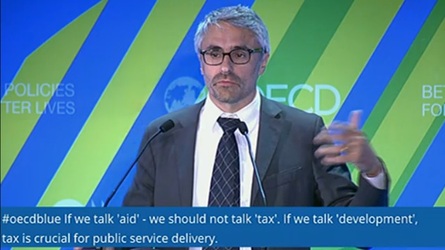 Pascal Saint-Amans, Director of the Centre for Tax Policy and Administration of the OECD addressing the audience (statement in the blue bar contributed by URAIDE during the session) Pascal Saint-Amans, Director of the Centre for Tax Policy and Administration of the OECD addressing the audience (statement in the blue bar contributed by URAIDE during the session) Paris, 5 May, 2014 Today a two day forum commenced, organized by the OECD, an organization committed to improve policies for development. Two sessions were in particular drawing my attention. One discussing tax as an alternative to development aid. The other one focussing on the sharing economy. The first following a twentieth century model of statebuilding, the latter questioning the presupposition of it. How to raise tax Jon Lomoy, the Norwegian Director of the Development Cooperation Directorate of the OECD, pointed to the deliberations at the UN in New York to arrive at a new set of Sustainable Development Goals. In order to achieve those goals three kind of income matter: tarif, tax and transfer. The argument in the blue room today was that tax should replace transfer. Oxfam pointed to a Christian Aid study indicating Sub-Sahara Africa requiring 650.000 tax officials to be employed to build a tax system that levels the ones in OECD countries. Apart from lack of capacity in developing countries, Pascal Saint-Amans of the Centre for Tax Policy and Administration enlightened the audience about Base Erosion and Profit Shifting (BEPS). The Colombian Minister on the panel mentioned the importance of consideration of the informal economy that usually does not show up in national figures. Deployment of tax inspectors without borders is considered from 2017 onwards (after successful completion of ongoing pilots). How to put tax to use In the green room earlier on Prof. Mariana Mazzucato wondered what is happening to tax, even when it is paid. In many countries those taxes may be re-invested in short-term innovation funds expecting a return in three to five years. She pointed to valuable contribution of development banks in both China and Brasil with a much longer time-horizon towards innovation. April Rinne of the Collaborative Lab and special advisor on a committee in Seoul strategizing the shared economy, passionately shared some disqualifyers for ownership and some incentives for a Sharing Economy. A lot of proceeds of this economy do no not end up in GDP statistics. She also sympetized with local administrators who often are not able to accomodate new businesses models in old systems. With tax systems based on the individual ownership model it will be difficult to accomodate the social economy. Sang Woo Kim, president of corporate affairs Europe for Samsung Electronics was amazed with the poor internet speed at household level in a number of European countries, which will be a determining factor in competitiveness in future. Infrastructure remains crucial. It has the potential to bridge cultural differences and develop trust. Challenging the innovation model Prof. Mariana Mazzucato went on to challenge the short-term funding model for innovation that won't create new markets. It takes a long time for revolutions to get fully deployed she argued. We should learn from the past. Sub-urbanization was a result of public policy. She pointed to the relevance of the green revolution for the deployment of the IT revolution. What she was hugely missing in governments was mission oriented thinking, with the tax avoidance industry benefiting of the complexity of current taxation systems. The way some European governments are currently financing innovation leads to socialization of risks and privatisation of rewards. Also the way companies are valued was questioned. Not the sheer volume of operations, but the number of business interactions should matter for a company to be called big. Somehow teaching came in as well though was dealt with in a separate session. It was noticed that patenting practice that are even applied to research tools by developed economies are stifling learning, especially in developing nations. Later during the day experiences with Massive Online Open Courses was shared by Anke Mulder of Delft Univeristy. Learning to organize will become one of the key capabilities also to get innovation going. Cross-sector collaboration will be pivotal requiring professionals with multiple specialisms. |
About meMy name is Reinier van Hoffen. U®Reading
Click here for a summary.
Also find the text of a lecture Dr. Achterhuis held at the 2012 Bilderberg conference. Archives
August 2022
|
AddressNachtegaallaan 26
Ede, the Netherlands |
Telephone+31 (0)6 1429 1569
|
|
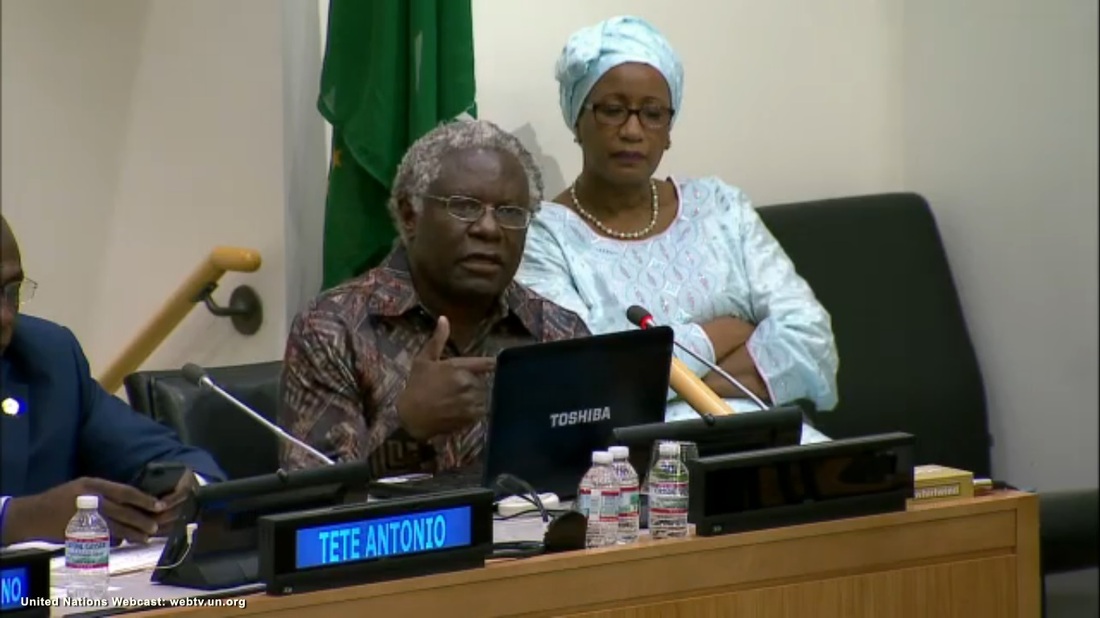
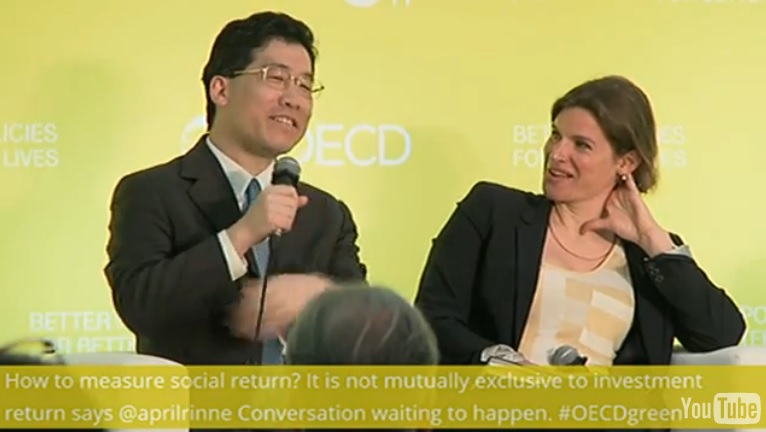
 RSS Feed
RSS Feed
















